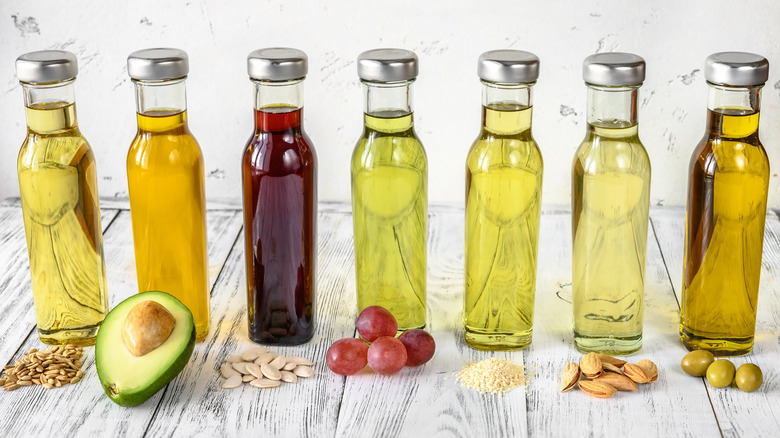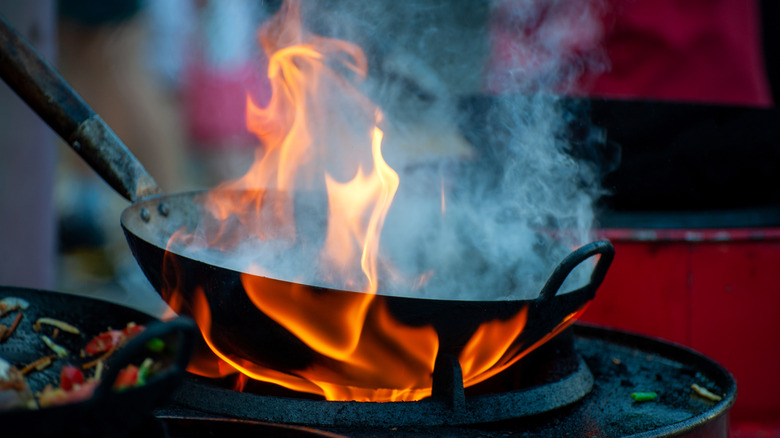What Is A Smoke Point And Why Is It So Important?
You might have heard that you shouldn't sear a steak in extra virgin olive oil, but never got an explanation as to why. Well, the answer has to do with the oil's smoke point.
Every type of fat has a smoke point, which is the point at which it goes from gently shimmering to smoking and burning. The smoke is a sign that the fat is breaking down, and releasing potentially harmful fumes and free radicals (via Public Health Nigeria). (Not to mention, this is also the point that your sensitive smoke alarm is likely to go off). Aside from being unhealthy, burning oil can give food an unpalatable flavor. Michele Redmond, a chef and dietitian, notes that, "It's important to know the smoke point of an oil because it alters the taste of food—and not in a good way. Knowing some basic smoke point ranges can make you a more efficient, flavor-sensitive cook" (via Microsoft News).
Change up your oil based on your cooking method
Generally, the more refined the oil, the higher the smoke point will be. Cold-pressed, unrefined oils such as extra virgin olive oil and avocado oil tend to have more distinct flavors, along with a healthy dose of minerals, enzymes, and other compounds that don't mix well with high-heat cooking (via Serious Eats). These have low smoke points, and are better used for lower-heat cooking such as baking, poaching, and sautéing, or used raw in salad dressings or drizzled over food (via Microsoft News).
To achieve a high smoke point, oils usually go through a refining process that may include bleaching, filtering, and high-temperature heating. This process removes the compounds that provide both flavor and nutrients to unrefined oils, leaving an oil that is not as heat-sensitive and has a longer shelf life, as well as a neutral flavor. These include oils such as refined avocado oil, canola, coconut, corn, and light olive oil. These are good choices for high-heat cooking such as searing, frying, and grilling.
Choose an oil based on the cooking method you plan to use, and then don't overheat it. Registered dietitian Isabel Smith tells Microsoft News, "Healthy fat is incredibly healthy for the health of our cells and cell membranes. We want the fat we're consuming to be high quality and not burnt!"


